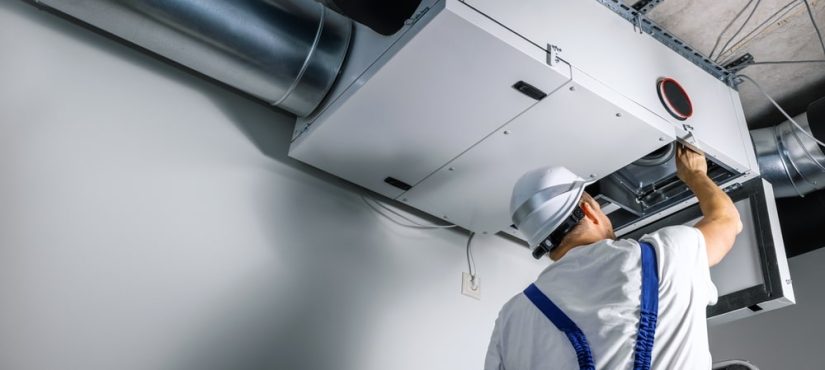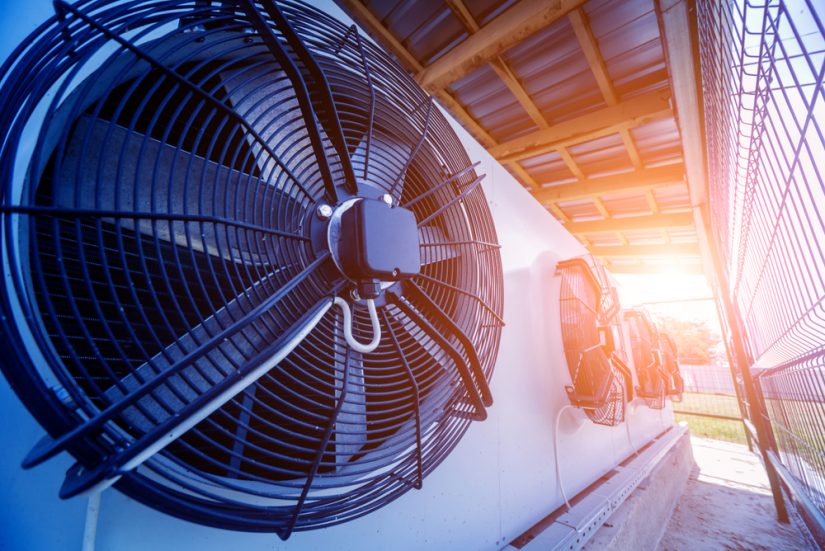We’ve all had those nights where it’s hot and stuff, and you feel as if your air conditioner isn’t even on. When this happens right in the middle of summer, you’re left asking why now? There are tons of reasons your AC isn’t cooling enough, and we’ll discuss a few of them below.

If your central air conditioner is not cooling, the first thing to look for is a dirty air filter. Dust, dander, and other airborne particles could cause build-up, preventing enough air from passing through. Surprisingly, changing a dirty air filter could be the troubleshooting tip you were looking for. The indoor temperature can feel much better and, more importantly, cooler!
You might notice that the air passing through the air conditioning isn’t blowing cold air or adequately cooling. Cleaning or replacing the air filter may assist in reaching the desired temperature. If you are unsure where it is, you can always call an HVAC technician for AC service or AC repair.
Most AC units have an outdoor condenser unit. When the outside unit and condenser fan in your air conditioner become clogged, it can cause issues. The condenser coils release heat from the refrigerant—so when you have a clogged condenser coil, it cannot function properly. This can reduce the cooling efficiency of your indoor unit and restrict airflow. In turn, the central air conditioning system has to work harder, which can lead to warm indoor air, higher energy consumption, and higher energy bills.
A clogged condenser or a dirty filter can also cause problems with the evaporator coils, which assist in the cooling process. A clogged condenser could cause a frozen evaporator coil, which reduces the cooling efficiency and cause the ac system to stop working.
In severe cases, a clogged condenser or frozen evaporator coil can cause the compressor to overheat and sustain damage, which can be expensive to repair or AC replacement. It’s important to schedule regular maintenance for your indoor and outdoor units.
If you suspect your condenser is clogged, it’s best to have it inspected for an air conditioning repair in Houston, TX by a professional. The professional will use a brush attachment to clean the evaporator and condenser coils.
Refrigerant is crucial for an AC to cool the air. If your air conditioner is blowing warm air, you could be experiencing leaking refrigerant. When the compressor malfunctions, it could easily lead to leaks. It’s worth checking your refrigerant levels and the compressor.
The AC compressor is responsible for the liquid refrigerant running through the indoor and outdoor coil and releases as a gas. The transferred heat energy is extracted to the outside, and your indoor air is cool. A failed compressor could mean refrigerant won’t properly run through the unit.
If the leak isn’t severe, you can call an HVAC professional to have a look. If the refrigerant leak is constant, it can cause your HVAC system to blow warm air. When that happens for a prolonged period, it could cause damage to the entire HVAC system.
Checking with an HVAC pro is essential in ensuring there isn’t a leak.
When a thermostat is faulty, it may not accurately detect the temperature setting in the cooling system. For the next troubleshooting tip, you should check the thermostat setting on your central AC to ensure it works. As a result of the thermostat settings not being accurate, the cooling system may not receive the correct signals to turn on or off, leading to poor cooling.
The system may run continuously, causing excessive cooling and high energy bills—or may not turn on at all—leading to warm indoor temperatures. Fixing a faulty thermostat by a qualified HVAC technician ensures proper cooling and prevents unnecessary expenses.
All cooling systems have a limited lifespan. An air conditioner not cooling could be the result of the unit coming near the end of its life. As a unit gets older, its efficiency can decrease. Blowing air in general can become difficult, let alone cold air. Hence, it may be more cost-effective to opt for a system replacement. However, if you live in Houston AC repair should be your first choice before replacing.
A separate breaker or dedicated circuit is solely for one appliance or device, such as an air conditioning system. This ensures a constant and sufficient supply of electricity to prevent an overload or insufficient power supply that could damage the AC system. HVAC professionals recommend having one for your AC unit for efficient and safe operation.
If your air conditioner unit is too small for the space, it will likely have difficulty keeping up with the cooling demands. As a result, the unit has to work harder to maintain the temperature, leading to inefficiencies and potential breakdowns.
An incorrectly sized AC unit can also lead to uneven cooling, where certain areas of the room or building may be cooler than others. It is vital to have a professional HVAC technician perform a load calculation to determine the appropriate size unit for your space. Investing in the correct size AC unit can ensure you enjoy efficient and effective cooling all summer long.

We’ve covered why your air conditioner isn’t blowing cold air. Air conditioners require regular maintenance at least twice a year—once before the winter and again before the summer.
Regular maintenance should include cleaning or replacing air filters and scheduling professional AC tune-ups. Sometimes a HVAC repair can solve the issue. These steps can help prevent these issues from occurring and ensure your AC is functioning optimally. Whether you have an indoor or outdoor unit, regular cleaning can ensure that air ducts are free of debris.
